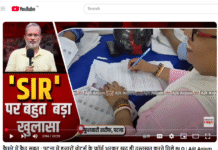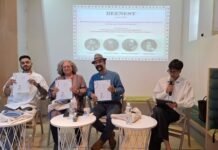The two-day summit taking place in Davao City, Mindanao over 25 and 26 October 2018 brought together 50 members of the working press under the umbrella of the Mindanao Independent Press Council (MIPC), a new body established to organize media professionals on the island around common issues of concern – notably safety and security.
NewsLine Philippines Publisher, WAN-IFRA Media Freedom Committee chairperson, and MIPC president, Edith Caduaya, said that despite the immense challenges facing media in Mindanao, the Council aims to adhere to the highest ethical standards of journalism.
“We are not perfect, but we try to be decent, especially in the era of disinformation,” she said. “Journalists are facing the challenge to continue telling the truth without fear or favour. When a legitimate news story is commercialized and politicized, journalist safety is compromised,” she added.
Mindanao came to international attention following the 2009 Maguindanao massacre, in which 58 people were killed during local political campaigning near the town of Ampatuan in south-central Maguindanao province. Thirty-four journalists were among those who died – the single most deadly attack on journalists anywhere in the world.
The island has also long been home to rival political and economic factions, criminal groups, insurgents and – most recently – ISIS and its affiliates; as a result, Martial Law continues to be in place across Mindanao. All of this contributes to an extremely challenging environment for local journalists.
In April 2018, during a four-day media safety-training workshop hosted by WAN-IFRA and the ACOS Alliance, with the support of Reuters, the initial MIPC members agreed to formally organize themselves in a bid to ensure each other’s safety, as well as come up with a mechanism to protect journalists.
The MIPC has subsequently been officially recognized and issued a certificate of registration by the Securities and Exchange Commission (SEC) of the Philippines. The MIPC has grown to include media from across the political and editorial spectrum, ensuring a diverse space for discussion and a rare opportunity for common ground to be found.
“We must agree and get our act together in the spirit of press freedom – anchored on the real role of the press as the purveyor of truth and as the watchdog over our society,” Caduaya emphasized.
















